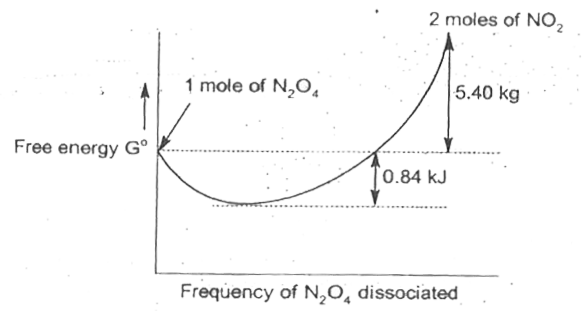Explian by taking three different examples how do certain organisms pull through the adverse conditions when unable to migrate under stressful period.
To explain how certain organisms cope with adverse conditions when they are unable to migrate, we can look at three different examples: estivation, hibernation, and diapause.
1. Estivation:
- Definition: Estivation is a state of dormancy that occurs in some animals during periods of extreme heat or drought, typically in the summer.
- Example: Snails are a prime example of organisms that undergo estivation. When the temperature rises and water becomes scarce, snails reduce their metabolic activity significantly. They may seal themselves in their shells with a layer of mucus to retain moisture and survive until conditions improve.
2. Hibernation:
- Definition: Hibernation is a similar process to estivation but occurs during cold winter months. It involves a significant reduction in metabolic rate, allowing animals to conserve energy when food is scarce.
- Example: Bears are well-known hibernators. As winter approaches and temperatures drop, bears enter a state of hibernation where their heart rate and body temperature decrease. They rely on stored body fat for energy, allowing them to survive until spring when food becomes available again.
3. Diapause:
- Definition: Diapause is a period of suspended development that occurs in some organisms, particularly in response to environmental stressors such as extreme temperatures or lack of food.
- Example: Zooplankton, which are small aquatic organisms, can enter a diapause stage. During this stage, their development halts, and they can survive in a dormant state until favorable conditions return, such as an increase in food availability or suitable temperatures.
Summary:
These three examples illustrate how organisms can adapt to adverse conditions without migrating. Estivation, hibernation, and diapause are survival strategies that allow them to endure periods of stress by reducing metabolic activity and conserving energy.
- Definition: Estivation is a state of dormancy that occurs in some animals during periods of extreme heat or drought, typically in the summer.
- Example: Snails are a prime example of organisms that undergo estivation. When the temperature rises and water becomes scarce, snails reduce their metabolic activity significantly. They may seal themselves in their shells with a layer of mucus to retain moisture and survive until conditions improve.
- Definition: Hibernation is a similar process to estivation but occurs during cold winter months. It involves a significant reduction in metabolic rate, allowing animals to conserve energy when food is scarce.
- Example: Bears are well-known hibernators. As winter approaches and temperatures drop, bears enter a state of hibernation where their heart rate and body temperature decrease. They rely on stored body fat for energy, allowing them to survive until spring when food becomes available again.
- Definition: Diapause is a period of suspended development that occurs in some organisms, particularly in response to environmental stressors such as extreme temperatures or lack of food.
- Example: Zooplankton, which are small aquatic organisms, can enter a diapause stage. During this stage, their development halts, and they can survive in a dormant state until favorable conditions return, such as an increase in food availability or suitable temperatures.
These three examples illustrate how organisms can adapt to adverse conditions without migrating. Estivation, hibernation, and diapause are survival strategies that allow them to endure periods of stress by reducing metabolic activity and conserving energy.
Topper's Solved these Questions
- BOOK - XII BOARD PREVIOUS YEAR PAPER ENGLISHCHAPTER - XII BOARDSEXERCISE - [SET -I] [Comptt.] SECTION-D1videos
XII BOARDS
- BOOK - XII BOARD PREVIOUS YEAR PAPER ENGLISHCHAPTER - XII BOARDSEXERCISE - [SET -I] [Comptt.] SECTION-E6videos
XII BOARDS
- BOOK - XII BOARD PREVIOUS YEAR PAPER ENGLISHCHAPTER - XII BOARDSEXERCISE - [SET -I] [Comptt.] SECTION-B6videos
XII BOARDS
- BOOK - XII BOARD PREVIOUS YEAR PAPER ENGLISHCHAPTER - SAMPLE PAPER 2019EXERCISE - Section E Part B3videos
SAMPLE PAPER 2019
Similar Questions
Knowledge Check
- Question 1 - Select One
The given graph represents how three different living organisms (X,Y and Z) cope with the external environmental conditions. Study the graph and select the correct option regarding X,Y and Z.
 AX could be a mammalBY could be a birdCZ could be a mammalDX could be a bird
AX could be a mammalBY could be a birdCZ could be a mammalDX could be a bird - Question 2 - Select One
The most important problem posed by the existence of different interests, that is to say different mental models and paradigms about and within organizations, is how to tackle their (potential) incompatibility. In order to manage the cognitive and normative differences and preferences as part of organizational practice, knowledge management and thus management education will have to detach themselves from a functionalist management ideology, and the positivistic idea of knowledge and rationality which is associated with it. Such concepts as deutero leaning, n-th order changes, and innovation instead of improvements) do not fit into the latter approach. Functionalism has a marked preference for unity above diversity, for harmony above conflict, for (functional) integration, and it chooses order above the potential chaos of continuous change. Incompatibility or incommensurability are then seen as a grave threat to vested interests. Functionalists in particular react too emotionally and with disgust at the idea of (apparent) unreconcilable differences which adhere to incommensurability. If, however, knowledge management and therefore also management education wish to be able to pride themselves on the fact that they aspire to continuous innovation and learning in organizations, then the management of irreconcilability and pluriformity will be an unavoidable and indispensable prerequisite for its success. Postmodernism belies all grand narratives like those of positivism and even Habermas's theory of rationality, that try to force people into the mold of a specific way of thinking and acting.
Postmodernism explains this tendency of grand theoretical system by positing two central characteristic of human reason : first, there is the fundamental and inalienable freedom or reason to conceptualize 'the world' in different ways, while second, each of these conceptualizations has a built-in and irreducible claim to universality. Management of incommensurability and heterogeneity in organizations expressly demands a postmodern epistemological perspective. Such concepts as incommensurability and internal differences have a prominent place in postmodernism. As is evident from the above quotation, postmodernism believes all great narratives on the levels of both epistemology and social philosophy. Positivism and even Habermas's theory of rationality, which under the guise of universality attempted to force people into a certain way of thinking and acting, as history has so adequately demonstrated, do not shrink from a totalitarian approach, Postmodernism shows that the incompatibility of grand theoretical systems is to be traced to two central features of human reason: first, the fundamental freedom of thought with which to view the world in one's own and therefore different way, and second, the inbuilt claim to universality, i.e., that one considers one's own point of view to be the best. It is for this reason that in practice it is not enough to minimalize the differences between alternative perspectives (which could lead to a kind of pluralistic indifference), neither would it do to resolve the conflicts between them in a forcible manner (this would lead only to dogmatism).
Managing differences will therefore be a challenge for knowledge management to find which leading element would be helpful in steering the ship of organization past the rocks of totalitarian rule and then around the cliffs of indifference.
A suitable title for the passage could be:AContradictions in Theoretical Systems of Post ModernismBManagement of Incompatibility in a Post Modern Perspective.CHeterogeneity in Management Ideology.DIrreconcilability and Pluriformity- Facets of Post Modernism.
Column I gives certain situations in which capacitance of a capacitor is charge by different means. Column II gives resulting effect under different conditions. Match the proper entries from colum - 2to column -1 using the codes given below the columns,
Column I Column II(P)The plates of a plane parallel capacitor are slowly pulled apart. Then the magnitude of electric field intensity inside the capacitor.(1)Increases if the capacitor is maintained at constant5 charge.(Q)The paltes of a plane parallel plate capacitor are slowly pulled apart. Then the potential energy stored in the capacitor.(2)Decreases if the capacitor is maintained at constant charge(R)The capacitance of an air filled plane parallel plate capacitor on insertion of dielectric(3)Increases if the capacitor is maintained at constant potential difference.(S)A dielectric on inserted an air filled plane parallel plate capacitor. The potential energy stored in the capacitor.(4)Decreases if the capacitor is maintained at constant potential difference.View SolutionDifferent animals respond to changes in their surroundings in different ways . Taking one example each explain some animals undergo aestivation while some others hibernation " .How do fungi respond to adverse climatic conditions ?
View SolutionDifferent animals respond to changes in their surroundings in different ways . Taking one example each explain some animals undergo aestivation while some others hibernation. How do fungi respond to adverse climatic conditions?
View SolutionA reaction is spontaneous if free energy change ΔG , for the reaction is negative . The question arises, how we can explain , the spontaneous of reversible reaction taking the example of dissociation equilibrium N2O4⇔2NO2(g) the variation of free energy with the fraction of N2O4 dissociated under standard conditions is shown in the figure below.

When 2 moles of NO2 change into equilibrium mixture the value of ΔG∘ isView SolutionThe given diagram is an outline of human body showing the posttion of certain organs. In this diagram
(I) Name the parts labelled 1-5.
(ii) Name the hormone released from 1 that influences the working of part 2.
(iil) How do part labelled as 3 differs from parts labelled as 1 and 2 in general? Name the endocrine cells present in part 3.
(iv) What will happen if the part labelled as 4 is removed ?
(11) Name the hormones released by part 5.
(VI) Why the part labelled as 1 called master gland? Which part of the forebrain controls the gland labelled 1 ?
(vii) Name the gland that secretes 'emergency hormone.
 View Solution
View SolutionSilicon is the second most abundant element (~27.2%) in the earth's after oxygen (45.5%) Carbon. Silicon, germanium, tin and lead constitute the group 14 of the periodic table. Chemistry of silicon is distinctly different from that of carbon.
For example, under standard conditions CO2 is a gas whereas SiO2 is a covalent solid.
Draw the structure of the anion present in pyroxene (MgCaSi2O6).
Silicones are important synthetic polymers which find extensive applications due to their chemical inertness and water repelling nature. Thet are produced via the following reactions.
2C6H5Cl+SiCu−−→370 KA
AH2O−−−→−HClBView Solution

